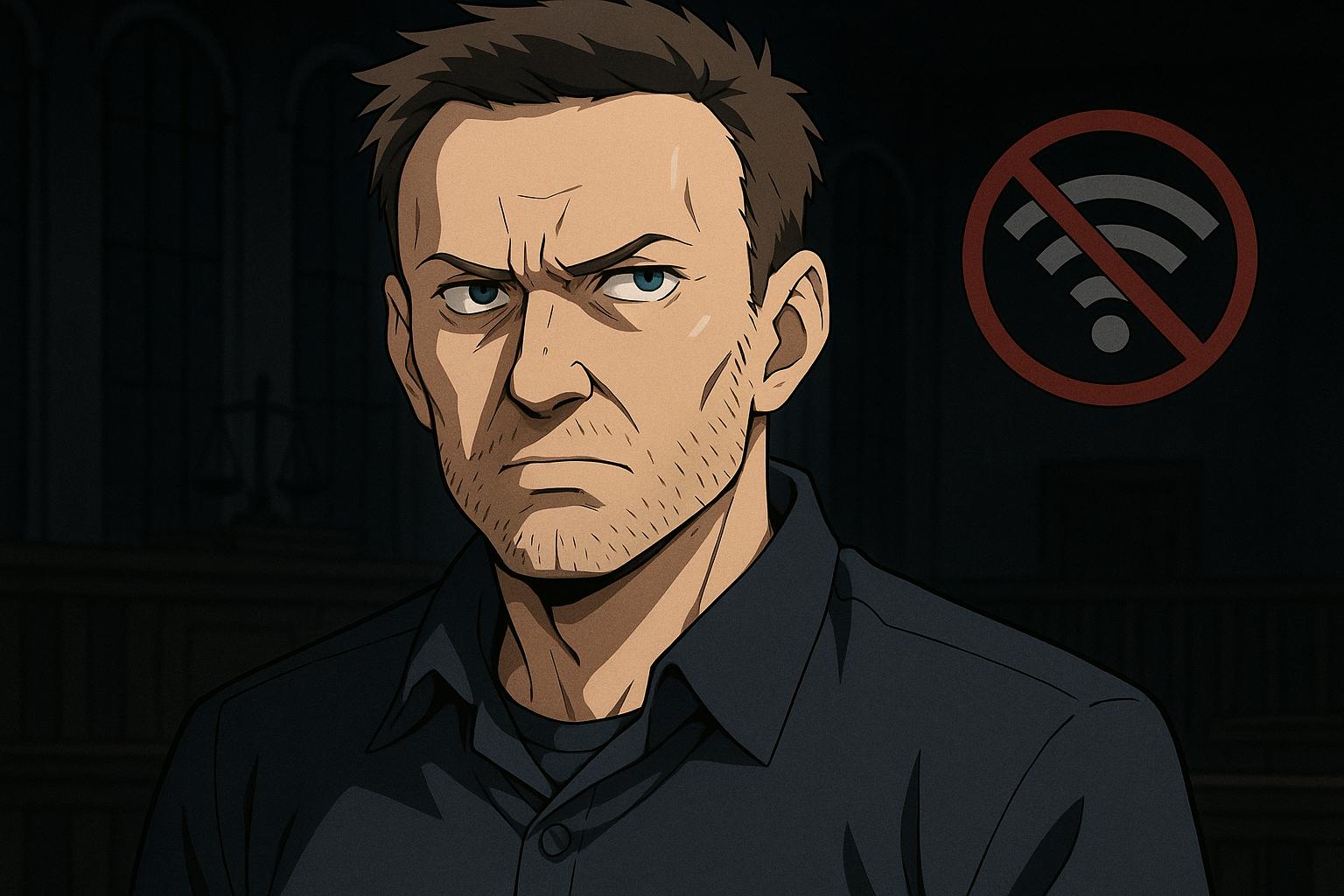Courts in Russia are tightening their grip on opposition figures, with recent sentences underscoring the Kremlin's ongoing crackdown on dissent. Leonid Volkov, a prominent associate of the late opposition leader Alexei Navalny, was sentenced in absentia to 18 years in prison on multiple criminal charges, including justifying terrorism and organizing an extremist group. This latest conviction comes amid broader efforts to silence voices that dissent against President Vladimir Putin's regime.
The Second Western District Military Court in Moscow found Volkov guilty of 40 separate counts, a move widely seen as politically motivated. Along with the prison sentence, he faces a hefty fine of 2 million rubles (approximately $25,000) and a ban on internet access for a decade. Following the verdict, Volkov, who has been living outside Russia for several years to escape persecution, took to social media to express his defiance. "Oh no! They banned me from the internet for 10 years as prosecutors requested, but I've already been using it," he jested, reflecting a spirit that contradicts the grim realities imposed by the state.
Volkov's history in the political arena is significant. As the leader of Navalny’s regional offices and election campaigns, he has been an activist against corruption and state abuses. His leadership of the Anti-Corruption Foundation from 2021 until 2023 led to his designation as a terrorist and extremist by Russian authorities, further entrenching his status as a target for political repression.
In a separate but related development, Lev Shlosberg, a senior member of the Yabloko opposition party, was placed under house arrest. Initially detained on charges of discrediting the Russian military—stemming from his calls for a ceasefire in Ukraine—Shlosberg's situation mirrors Volkov's in that his actions have been branded as politically motivated. Having previously received the label of “foreign agent,” Shlosberg faces accusations based on new legislation that obliges individuals to indicate this status in their publications. He denied any wrongdoing, asserting that he complies with the law’s requirements. Conviction could also lead to significant imprisonment for Shlosberg, further complicating the landscape for opposition within Russia.
The context surrounding these legal decisions is crucial. Since Russia's invasion of Ukraine in February 2022, the government has intensified its campaign against dissenters. Targets have included not only political leaders but also civil society organisations, human rights activists, and various minority groups. The Kremlin's strategy appears aimed at quelling any form of resistance in a climate increasingly intolerant of opposition voices.
The state’s actions come on the heels of a broader crackdown orchestrated against independent politicians. This includes police raids and confiscations at various political offices, notably seen in earlier incidents where Shlosberg's Yabloko party office was searched. Such measures illustrate the regime's aggressive tactics in suppressing discourse critical of state policies.
As the political climate in Russia becomes increasingly hostile, the narratives surrounding figures like Volkov and Shlosberg serve as potent reminders of the perils confronting those who stand against authoritarian rule. The ongoing struggles of these opposition figures reflect the broader socio-political landscape, highlighting the risks faced by dissenters in a country where the grip of power has tightened dramatically.
📌 Reference Map:
Source: Noah Wire Services
